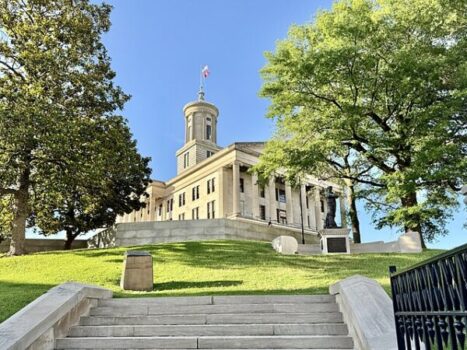Tennessee lawmakers have passed a comprehensive budget for fiscal year (FY) 2025-2026, which includes new financial support for emerging state needs, disaster relief and modernizations to aging infrastructure.
Tennessee’s new budget, approved by the state’s general assembly, will allocate $59.8 billion over the next FY to maintain, upgrade and operate the state’s government services, agencies and projects. Growing 2% in spending since the last installment, the new budget will advance the state’s commitment to balancing funding efforts for public safety, infrastructure, education, health care and disaster relief for communities affected by Hurricane Helene.
The budget, which is set to take effect on July 1, will source funds from a combination of state and federal revenues, including an estimated $30 billion in state funds and more than $20 billion from the federal government. While spending is expected to rise, an additional $35.6 million investment in the state’s Rainy Day Fund will bring the state’s reserves to the largest in history, at nearly $2.2 billion.
One federal commitment noted in the budget will borrow $1 billion from the federal government to support road infrastructure projects and long-term sustainability in Tennessee’s transportation systems.
Lawmakers on both sides of the aisle have expressed concerns that the availability of federal funding is uncertain. Freezes in federal programs that fund infrastructure, education and sustainability are anticipated to change budgeting priorities, including cuts to the National Electric Vehicle Infrastructure program and the Charging and Fueling Infrastructure (CFI) Discretionary Grant Program.
Among the budget’s notable investments is $597 million allocated for disaster relief and recovery efforts. $26 million of this funding is earmarked for victims of Hurricane Helene, which caused historic flooding and devastation along eastern portions of Tennessee in 2024.
Educational institutions, including higher education facilities and K-12 schools and districts, will benefit from a bump of support from the legislature.
The new budget will dedicate $640 million to K-12 education, with a $198 million one-time bonus for teachers and millions for teacher pay raises. K-12 infrastructure and facilities will be supported by a $62.7 million investment to reinvigorate Tennessee’s youth education.
As part of the budget-making process, state legislators evaluated existing funds and prioritized new initiatives to support. Seeking to bolster local services across the state, the new budget will create a $42.5 million grant pool for important emergency and community services.
The grant pool will feature several new appropriations for local, regional and state services, including $20 million to volunteer fire departments, $5 million to emergency medical services, $5 million for senior centers and $5 million to local museums for capital improvements, among other initiatives.
The new budget was crafted by state lawmakers after evaluating the governor’s proposed supplemental budget. The state Senate and House revised this initial budget proposal, cutting approximately $180 million from zoos, ecology, affordable housing initiatives and preservation on the Duck River.
While the General Assembly’s budget presents estimated funding allocations and statewide goals, the state’s budget will be presented to Gov. Bill Lee for final approval. As required by state law, the full budget must be approved and enacted prior to the start of the next FY on July 1.
Photo Courtesy
w_lemay via Wikimedia Commons
Tennessee’s $59.8B budget boosts schools, disaster relief
by Kristi Holmes | Apr 30, 2025 | GCP 2025 | 0 comments

